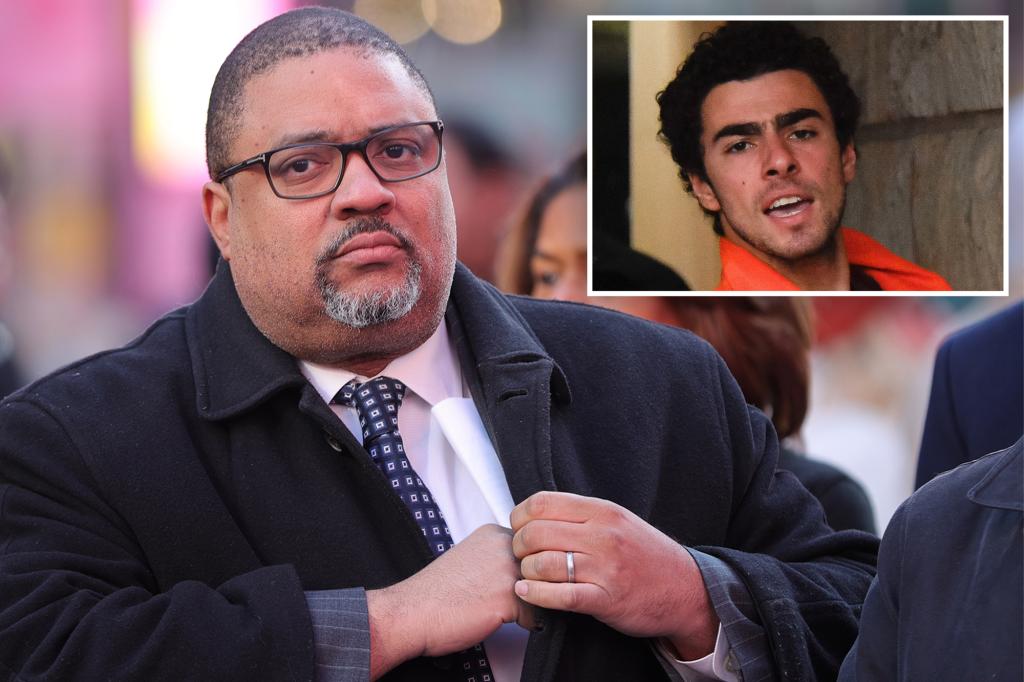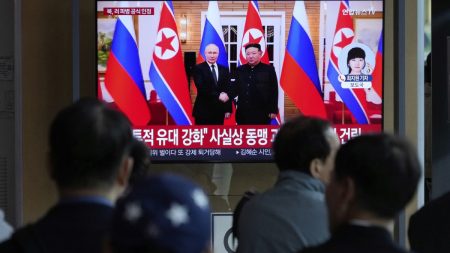The Manhattan District Attorney’s office is preparing for the imminent extradition of Luigi Mangione, the primary suspect in the murder of UnitedHealthcare CEO Brian Thompson, from Pennsylvania back to New York City. District Attorney Alvin Bragg announced that while Mangione initially challenged the extradition order, indications suggest he may waive his right to fight the process during a scheduled court appearance in Pennsylvania. The DA’s office, however, remains prepared to pursue both avenues – extradition with or without Mangione’s cooperation – ensuring a swift return to New York to face charges, regardless of the suspect’s decision. This proactive approach underscores the seriousness of the charges and the DA’s commitment to bringing Thompson’s killer to justice.
The details surrounding the murder paint a chilling picture. Thompson, a 50-year-old CEO, was fatally shot on December 4th while walking to the Hilton hotel on Sixth Avenue in Manhattan. The hotel served as the venue for UnitedHealthcare’s parent company’s annual investor conference. Mangione, a 26-year-old graduate of the University of Pennsylvania, was identified as the alleged gunman, sparking a five-day manhunt that spanned multiple states. The search concluded with Mangione’s apprehension at a Pennsylvania McDonald’s, thanks to an observant employee who recognized him and alerted authorities. The discovery of a manifesto-like document in Mangione’s possession, which reportedly mentioned UnitedHealthcare and accused health insurance companies of corporate greed, added another layer of complexity to the case, potentially suggesting a motive for the seemingly random act of violence.
The apprehension of Mangione brought a sense of relief to law enforcement and the public, but the legal process is far from over. Currently held without bail at the State Correctional Institution in Huntington, Pennsylvania, Mangione faces gun and forgery charges in that state, to which he has pleaded not guilty. These charges, while separate from the murder case in New York, add to the legal complexities surrounding his extradition. New York Governor Kathy Hochul has stated that Mangione’s indictment for Thompson’s murder is imminent, and an extradition warrant will be issued as soon as charges are formally filed. This coordinated effort between state authorities highlights the gravity of the crime and the determination to ensure Mangione is held accountable in the appropriate jurisdiction.
The potential waiver of extradition by Mangione could significantly expedite the legal proceedings. By waiving extradition, Mangione would effectively agree to return to New York voluntarily, eliminating the need for a protracted legal battle between the two states. This would allow the New York legal system to proceed with the murder charges without delay, bringing the case closer to a resolution for Thompson’s family and the public. However, even if Mangione chooses to contest extradition, the Manhattan District Attorney’s office is prepared to vigorously pursue the legal avenues necessary to secure his return. This dual-track approach demonstrates the DA’s commitment to leaving no stone unturned in the pursuit of justice.
The case against Mangione hinges on several key pieces of evidence, including eyewitness accounts, forensic evidence collected at the scene of the shooting, and the aforementioned manifesto-like document found in his possession. The prosecution will likely present a comprehensive case detailing Mangione’s actions leading up to, during, and after the shooting, aiming to establish a clear timeline and motive. The defense, on the other hand, may explore various legal strategies, potentially challenging the admissibility of certain evidence or questioning the reliability of eyewitness testimony. The legal battle promises to be complex and closely scrutinized by the public, given the high profile nature of the victim and the seemingly senseless nature of the crime.
The murder of Brian Thompson has sent shockwaves through the corporate world and beyond, highlighting the vulnerability even of high-profile individuals to acts of violence. The case has also sparked conversations about corporate responsibility, healthcare access, and the potential consequences of unchecked grievances. As the legal proceedings unfold, the nation will be watching closely, seeking answers and a sense of closure in this tragic case. The meticulous preparations of the Manhattan District Attorney’s office, coupled with the ongoing investigation, underscore the commitment to ensuring justice is served and that Luigi Mangione is held accountable for his alleged actions.










